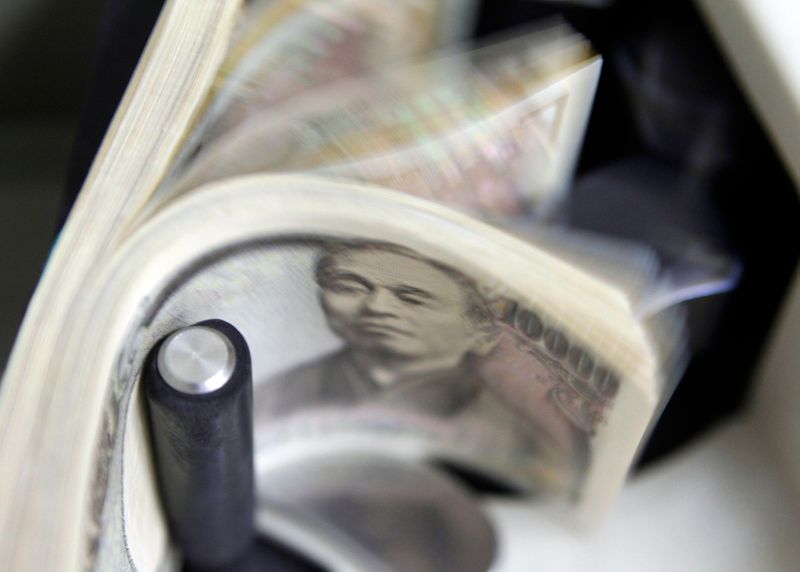Gold prices edge higher with focus on Ukraine-Russia, Jackson Hole
By Geoffrey Smith
Investing.com -- The yen surged as the Bank of Japan intervened to support it in the foreign exchange market for the first time since 1998, only minutes after signaling it still doesn't want to tighten monetary policy.
The Japanese currency bounced sharply from a 24-year low of 145.90 to the dollar, rocketing as far as 140.73 before starting to retrace its gains.
By 05:25 ET (09:25 GMT), the dollar had recovered around half of what it had lost during the yen's initial surge to stand at 142.44, down 1.2% on the day.
The move is important because advanced economy central banks have largely given up on foreign exchange market intervention over the last three decades, allowing their currencies to float freely in line with market fundamentals. The yen's fundamentals have been essentially negative this year, as the Bank of Japan has refused to raise interest rates, widening the premiums enjoyed by other currencies such as the dollar, sterling and even the euro.
Analysts argued that the intervention was unlikely to stop the yen weakening further in the medium term, but may give market participants second thoughts before shorting the currency any more.
“For the time being, we could see some unwinding of yen shorts, particularly if the BoJ continues to intervene in the market on behalf of the [Ministry of Finance] early next week," said analysts at Informa Global Markets in a note to clients. "It’s clear that Japan needs to stem yen weakness before it creates more upward tensions for domestic prices.”
They added that: "Unilateral intervention by Japan is unlikely to sustainably trigger a yen recovery, since the backdrop is an aggressive Fed and outright USD strength.”
The move comes a day after the Federal Reserve raised the target range for fed funds by another 75 basis points to 3%-3.25% and flagged its intention to raise them above 4% next year as it tries to bring down inflation from a 40-year high.
By contrast, the Bank of Japan at its meeting on Thursday had kept its key rates unchanged and stuck by its policy of capping long-term bond yields, saying that the underlying weakness of demand in Japan would ensure that inflation falls back of its own accord next year.
“With clearly different economic and price situations, there is no need for Japan to remove negative rates just because others have done so,” BoJ Governor Haruhiko Kuroda said at a press conference following the meeting.
